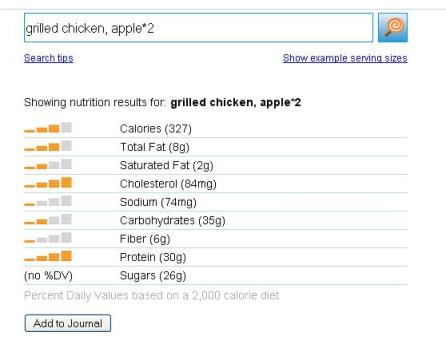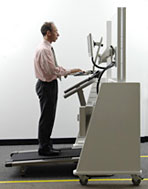January 11th, 2011 by Toni Brayer, M.D. in Better Health Network, Health Tips
No Comments »

 As part of the new healthcare legislation (Affordable Care Act), the FDA has now published its guidelines for restaurants to inform consumers of the calorie counts of food. It establishes requirements for nutrition labeling of standard menu items for chain restaurants and chain vending machine operators.
As part of the new healthcare legislation (Affordable Care Act), the FDA has now published its guidelines for restaurants to inform consumers of the calorie counts of food. It establishes requirements for nutrition labeling of standard menu items for chain restaurants and chain vending machine operators.
This is important because Americans now consume an estimated one-third of their total calories from foods prepared outside the home. Consumers are generally unaware of the number of calories they consume from these foods, and being overweight or obese increases the risk of a number of diseases including heart disease, type 2 diabetes, stroke, and cancer.
Here’s what the guidelines say:
— Restaurants with 20 or more locations must disclose the number of calories in each standard menu item on menus and menu boards (have 19 chain locations? You get a pass. Daily specials also get a pass.)
— Additional written nutrition information must be available to consumers upon request (total fat, saturated fat, cholesterol, sodium sugars, carbs, fiber, protein, etc.)
— The menu must say that the additional nutritional information is available. Read more »
*This blog post was originally published at EverythingHealth*
November 18th, 2010 by Berci in Better Health Network, Health Tips, News, Research
No Comments »

Although I can check the calorie content of any food on WolframAlpha, it’s good to have a site that focuses only on this issue:
PhotoCalorie is an application inspired by the ideas of Dr. Mark Boguski of Harvard Medical School, who realized that the current methods available to track your daily nutrient intake are monotonous and simply too complicated. As a result, people would lose interest in tracking their diet or stop the diet all together. Our mission is to create the easiest food journal on the planet to help dieters lose weight and monitor their diet with ease.


*This blog post was originally published at ScienceRoll*
September 30th, 2010 by Steve Novella, M.D. in Better Health Network, Health Tips, Opinion, Quackery Exposed, Research
3 Comments »

If you believe everything you read on the Internet, then is seems that a chemical found in thousands of products is causing an epidemic of severe neurological and systemic diseases, like multiple sclerosis and lupus. The FDA, the companies that make the product, and the “medical industrial complex” all know about the dangers of this chemical, but are hiding the truth from the public in order to protect corporate profits and avoid the pesky paper work that would accompany the truth being revealed.
The only glimmer of hope is a dedicated band of bloggers and anonymous email chain letter authors who aren’t afraid to speak the truth. Armed with the latest anecdotal evidence, unverified speculation, and scientifically implausible claims, they have been tirelessly ranting about the evils of this chemical for years. Undeterred by the countless published studies manufactured by the food cartel that show this chemical is safe, they continue to protect the public by spreading baseless fear and hysteria.
Hopefully, you don’t believe everything you read on the Internet, and you don’t get your science news from email SPAM, where the above scenario is a common theme. While there are many manifestations of this type of urban legend, I am speaking specifically about aspartame — an artificial sweetener used since the early 1980s. The notion that aspartame is unsafe has been circulating almost since it first appeared, and like rumors and misinformation have a tendency to do, fears surrounding aspartame have taken on a life of their own. Read more »
*This blog post was originally published at Science-Based Medicine*
September 19th, 2010 by Maria Gifford in Better Health Network, Expert Interviews, Health Tips, Research
No Comments »
 Obesity doesn’t stand a chance against Dr. Jim Levine, one of the prestigious presenters at Mayo Clinic’s Transform 2010 conference last week. Dr. Levine’s fascinating research focuses on helping people understand obesity, weight reduction, and Non-Exercise Activity Thermogenesis (NEAT) — the idea that expending calories through the activities of daily living is more important for calorie burning than exercise is.
Obesity doesn’t stand a chance against Dr. Jim Levine, one of the prestigious presenters at Mayo Clinic’s Transform 2010 conference last week. Dr. Levine’s fascinating research focuses on helping people understand obesity, weight reduction, and Non-Exercise Activity Thermogenesis (NEAT) — the idea that expending calories through the activities of daily living is more important for calorie burning than exercise is.
Dr. Levine’s “Treadmill Desk” has won more than 50 national and international awards in science, including the Judson Daland prize from the American Philosophical Society, the Invention of the Future Award from NASA, and the Innovation Award at the World Fair. The “Walkstation” is now a product of Steelcase.
Dr. Levine’s work has been highlighted nationally around the world, and he has produced documentary films with the BBC, ABC, and CNN. His Walkstation has been featured in The New York Times, his vision of a future where office people walk at work in USA Today, and his Treadmill Desk tested live on Good Morning America. Read more »
September 14th, 2010 by Maria Gifford in Better Health Network, Health Policy, Interviews, Research, True Stories
No Comments »
 Appearing as a Second Life 3D virtual-world avatar at Mayo Clinic’s “Transform 2010” symposium (watch the video here), Mrs. Q — a teacher and the anonymous author of the blog “Fed Up With Lunch: The School Lunch Project” — told the story of how her unique health mission has come to be. She’s determined to help people understand just how sick our “healthy” school lunches really are.
Appearing as a Second Life 3D virtual-world avatar at Mayo Clinic’s “Transform 2010” symposium (watch the video here), Mrs. Q — a teacher and the anonymous author of the blog “Fed Up With Lunch: The School Lunch Project” — told the story of how her unique health mission has come to be. She’s determined to help people understand just how sick our “healthy” school lunches really are.
Mrs. Q has sparked the interest of child health advocates around the country. Thanks to programs like First Lady Michelle Obama’s “Let’s Move Initiative” and Jamie Oliver’s “Food Revolution,” the nation is paying more attention to childhood obesity and school lunch reform.
Mrs. Q’s blog was started because of her own experiences with school meals after she ate the food prepared at school because she forgot her lunch at home. She keeps her identity a secret due to fear of losing her teaching job. Read more »
 As part of the new healthcare legislation (Affordable Care Act), the FDA has now published its guidelines for restaurants to inform consumers of the calorie counts of food. It establishes requirements for nutrition labeling of standard menu items for chain restaurants and chain vending machine operators.
As part of the new healthcare legislation (Affordable Care Act), the FDA has now published its guidelines for restaurants to inform consumers of the calorie counts of food. It establishes requirements for nutrition labeling of standard menu items for chain restaurants and chain vending machine operators.






 Obesity doesn’t stand a chance against Dr. Jim Levine, one of the prestigious presenters at Mayo Clinic’s
Obesity doesn’t stand a chance against Dr. Jim Levine, one of the prestigious presenters at Mayo Clinic’s  Appearing as a
Appearing as a 









